Currently, the pig farming industry in Ha Tinh is facing challenges: many dangerous and complicated diseases, pressure to protect the environment and stricter demands from the consumer market. From this reality, many households are forced to change their practices, seek more sustainable models, and replace traditional farming methods that have revealed many shortcomings. In that context, applying biosafety farming associated with microbiological technology is considered an effective "shield", helping to minimize risks, protect the assets of farmers, and open up a development direction associated with sustainable agricultural criteria.
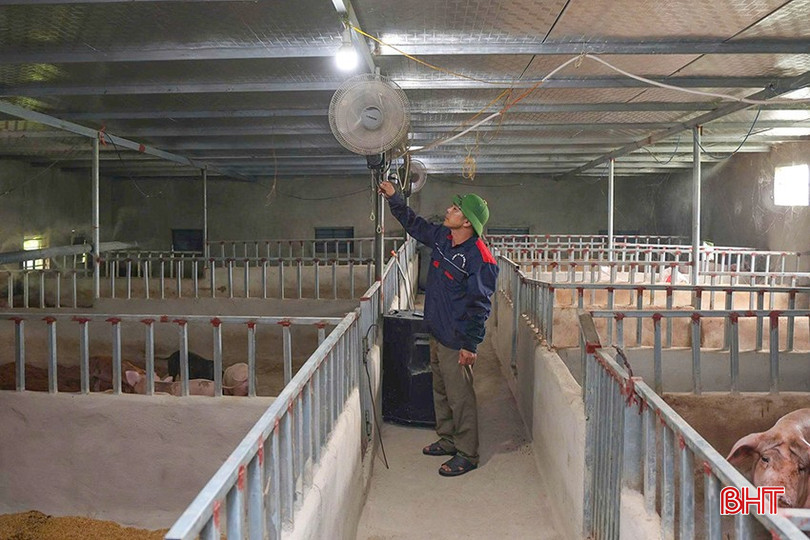
After the research and reinvestment in the barn system, from 2024, Mr. Tran Van Son's household (Dan Hai commune) began to implement biosafety livestock farming linkage. Applying the correct process, his barn system is always in a state of "nothing in, nothing out". Currently, the family's pig herd is growing steadily and healthily. Previously, the family sold over 100 pigs, bringing in a good income and high profits.
Mr. Son said: “Raising using traditional methods, we rarely pay attention to vaccination; people go in and out of the barn frequently, there is no separation from the outside; manure is not treated properly; care is not focused on... so the pigs grow poorly and are often infected. Now, after learning the techniques, I use mixed biological products in food and drinking water; spray environmental treatment products; combine with a cooling system... so the pigs are healthy, have few minor illnesses and are still safe when African swine fever (ASF) is complicated. In addition, I also use biological bedding, which does not generate wastewater or odor, limiting the impact on the surrounding environment.”
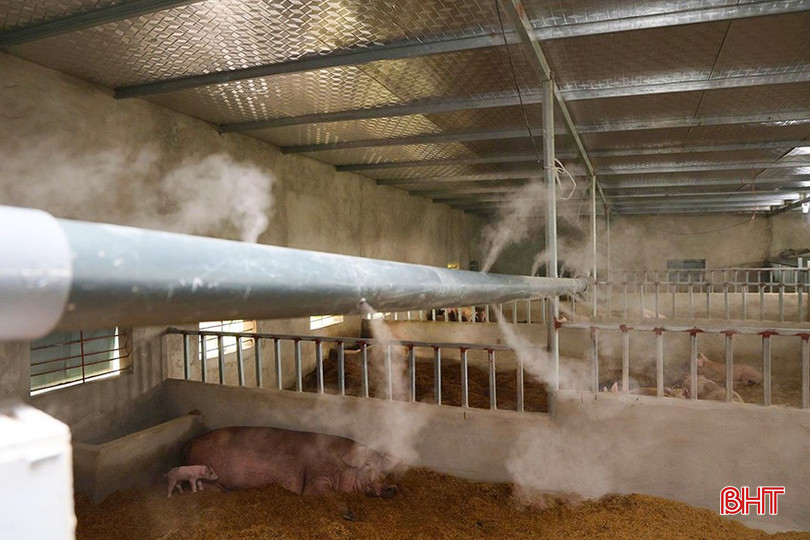
From production practice, Mr. Dang Dinh Vinh - a pig farmer applying biosafety procedures in Xuan Loc commune said: "Biosafety farming combined with microbiological technology brings about clear results, especially suitable for small and medium-sized households. Although the cost increases by 20-30% compared to conventional farming methods, the pigs are less sick, veterinary medicine costs are significantly reduced and the farming environment is cleaner, so the profits are still good. The important thing is that farmers must change their production practices and care processes to adapt to this method."
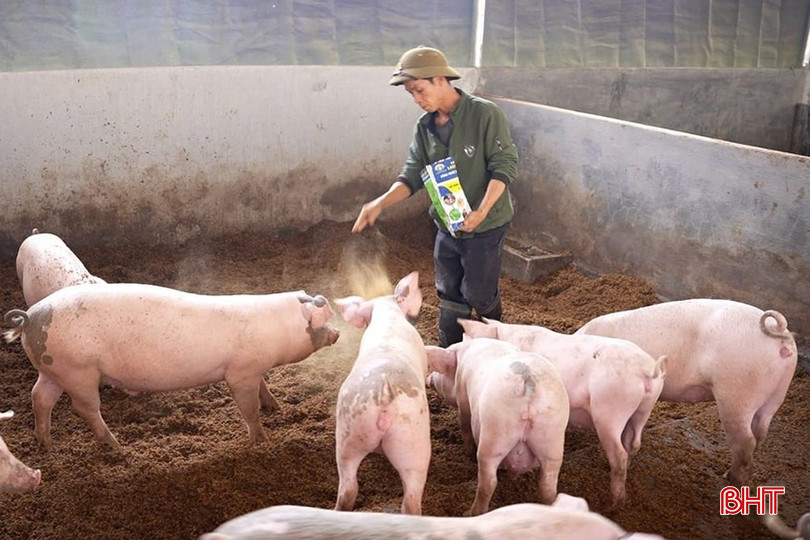
In reality, although biosafety farming does not set strict standards like VietGAHP (Vietnamese Good Animal Husbandry Practices), it still requires synchronous implementation in many stages. In Ha Tinh , many farming households have initially focused on planning and renovating the barn system; periodically disinfecting and sterilizing the farming area; and applying technical advances such as biological bedding and microbial preparations.
In addition, waste is collected and treated by appropriate methods; livestock are provided with quality food sources, raised at reasonable density and vaccinated fully and on schedule. Applying this model brings clear environmental benefits by limiting wastewater and odor generation, contributing to protecting the health of direct livestock farmers as well as the surrounding community.
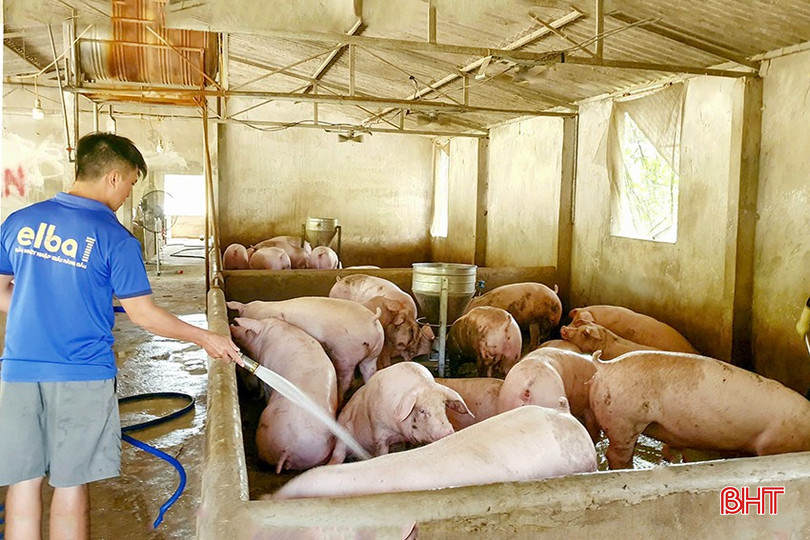
However, in addition to changing the mindset and methods of livestock farming from the people, the accompanying role of authorities at all levels is extremely important. Accordingly, it is necessary to have timely support mechanisms and policies, access to preferential loans, transfer of scientific and technical advances; training and coaching to improve knowledge for livestock farmers; visit effective models;... In particular, when a close connection is formed between people - businesses - management agencies, the livestock value chain not only helps increase profits but also creates a stable and sustainable consumption market. This is the foundation for the livestock industry in Ha Tinh to gradually develop in a modern and disease-free direction.
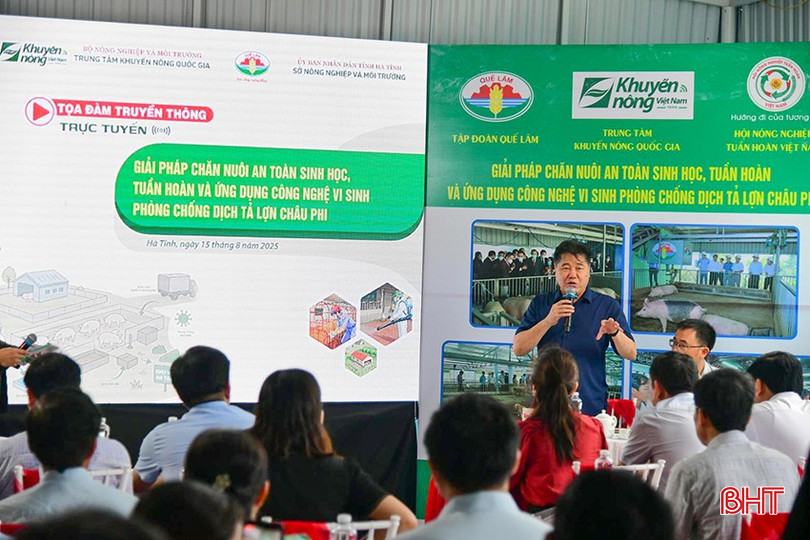
Recently, at a seminar organized by the National Agricultural Extension Center in Ha Tinh with the theme "Solutions for safe and cyclical livestock farming and application of microbiological technology to prevent ASF", Mr. Le Quoc Thanh - Director of the National Agricultural Extension Center said: "The damage caused by ASF to livestock farmers in Ha Tinh in particular and the whole country in general since the beginning of the year is very large. However, in the coming time, people still have to re-herd to ensure a large supply of meat for the year-end market. In that context, focusing on implementing and applying microbiological technology in pig farming is an effective solution to minimize the agents that cause ASF; at the same time, it is necessary to strictly control from breeding animals, food, drinking water, environmental sanitation to people entering and exiting barns, consuming products; regularly performing cleaning, disinfection, sterilization...".
Source: https://baohatinh.vn/an-toan-bi-hoc-loi-ich-kep-cho-chan-nuoi-nong-ho-post295991.html






![[Photo] Binh Trieu 1 Bridge has been completed, raised by 1.1m, and will open to traffic at the end of November.](https://vphoto.vietnam.vn/thumb/1200x675/vietnam/resource/IMAGE/2025/10/2/a6549e2a3b5848a1ba76a1ded6141fae)



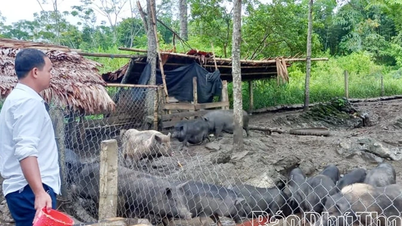


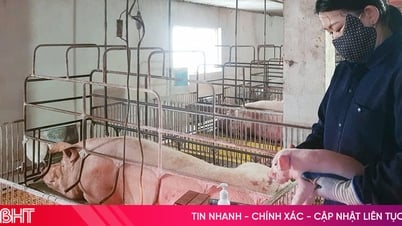


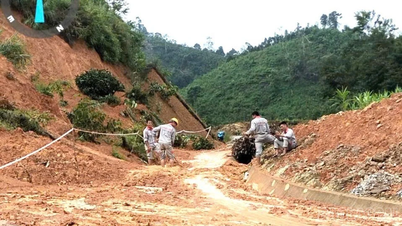

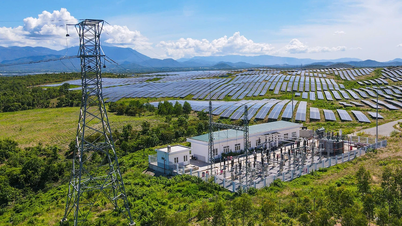


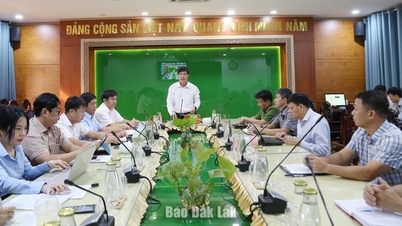

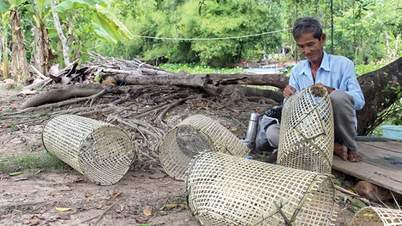

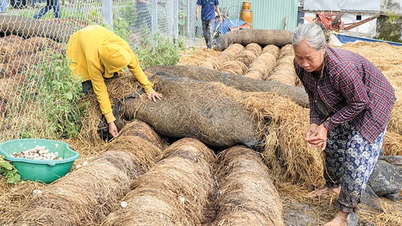




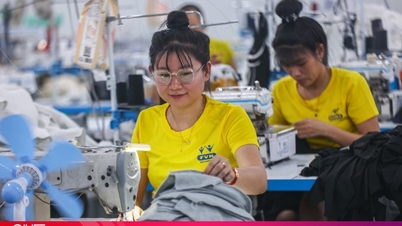
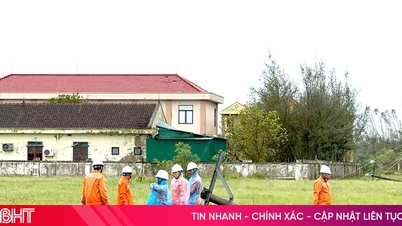






















































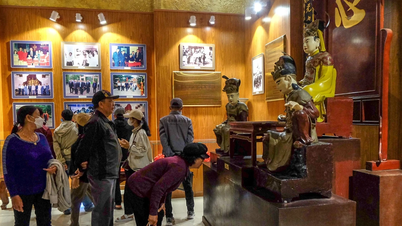

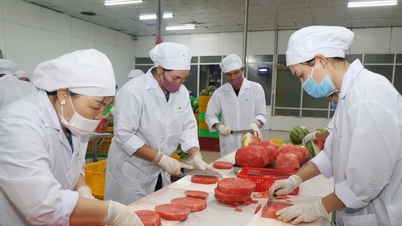

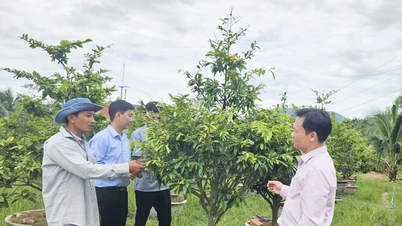
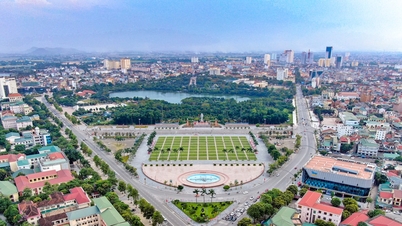

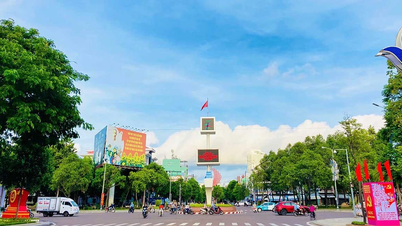












Comment (0)